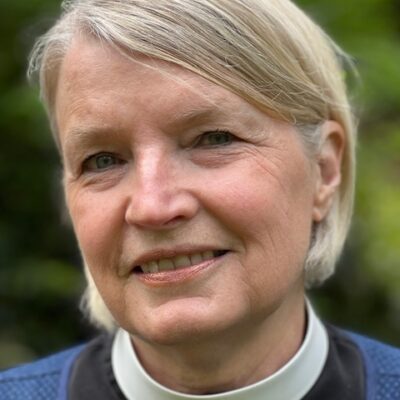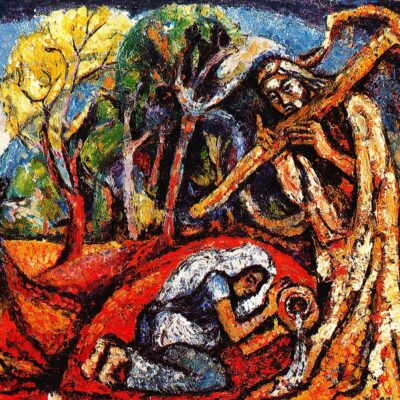We live in a time of outrage, resistance and protest; of uncovering what is wrong and speaking truth to power. Every news cycle contains new revelations of sexual misconduct and cover-up, of egregious racism leading, in some cases, to wrongful death, and of political skullduggery which cheapens democracy and the integrity of our common life.
The church cannot be silent or collude with the evil that so often damages the most vulnerable. Preachers are called not only to comfort the afflicted, but to afflict the comfortable. We are to prepare sermons with the Bible in one hand and the newspaper in the other, attentive to the conflict between the prophetic Christian message and the complexities of an imperfect and sinful world.
And so, for the past six weeks, this Christian preacher has been wrestling with the many ways we fall short of the ideals to which we have been called, both as individuals and as a community. According to Matt, who was here for all of the previous five weeks until he and Nora left to move to Michigan, “You’ve been on fire!” I think that was meant in a good way!
We have a strong Judeo-Christian tradition of telling it like it is. The prophet Nathan is a great example. After the greatest King in Israel’s history commits horrific abuses of power, lust and cover-up in the rape of Bathsheba and the murder of her husband, Uriah David thought he had gotten away with it. He even married Bathsheba and was expecting their child, his heir. Her fragile position forced her into shame and secrecy. Only David’s battle captain, Joab, knew what really happened and it was to his advantage to keep silent.
So David has no idea what’s coming when Nathan visits him and tells his little story about the rich man, and the poor man with his one beloved lamb. David rationalized his own behavior so much that he does not recognize the trap set by Nathan’s tale. In his own righteousness, David is outraged. He is quick to condemn the rich man. He is anxious to show his own compassion. He wants to take matters into his own hand to punish the wrongdoer and set things right for the victim. He once again thinks that he knows best, that he has the power and can control things to determine the outcome. He has forgotten the source of truth, the judge of all, the good shepherd who cares for each lamb.
Sin is so predictable. The methods may be different but through the ages the impulses are all the same: greed, lust, power, selfishness, pride. Sin doesn’t vary that much. What is interesting about sin is God. God’s approach to sin and the sinner is always nuanced and personal. Grace is never formulaic. God’s intricate weave of justice and mercy is wiser and more subtle than any system of punishment and rehabilitation that we can conceive.
David convicts himself by his own judgement. “You are the man,” proclaims Nathan and all his justification and avoidance is destroyed. The great revelation is that God has never been apart from David. God knows his heart and cares deeply about all those he has wronged and wounded. What had been secret will now be in the open. The shame of David is uncovered. The consequences he faces are awful; the death of his and Bathsheba’s son, unending strife and more rape and murder within his own family. As he begins to fully experience the weight of it all, David finally says, “I have sinned against the Lord.”
From this confession and repentance, something new and surprising is birthed. From death and destruction there is an unexpected renewal and hope. It is no shock to God that David has sinned so badly. After all, it is what every human being does, each in our own way. It’s only more spectacular because of David’s status and how far he has fallen from his own self image. Sin doesn’t surprise God and it shouldn’t really shock us either.
After all, every time we are outraged about the despicable behavior of another, we might have to face the words, “You are the one” in relation to our own greed, lust, pride, and hatred.
I became aware of this in my own life recently. The diocese has joined an ACLU lawsuit to prevent the seizure and destruction of the personal property of the homeless. I was called upon to give a deposition and I know the real pain that is caused when people lose what little they have. But this past week I was fed up. I was determined to make sure that no one was camping or dumping their stuff on our property. It’s an eyesore, it attracts more campers, it makes our neighbors crazy and our tenants nervous. I was so frustrated that I considered hiring a truck with two big guys to come and take away all the crap on the parking strips. Until… I read the story about the poor man who had so little, just one lamb and nothing more. What would it mean for me to take away the few meager possessions of the poor? After all, it would take an entire moving van to fit all the junk I own. “I am the man!”
Scripture is so dang convicting. God is so dang sneaky. God has more ways to reach me than I can possibly keep up with. We can hear how David responded to the preaching of Nathan and the conviction of his heart and spirit. We can share with David in a heartfelt response to our sin and God’s presence in our lives. With David we can move from denial, justification, and digging ourselves deeper into a bad situation. We can experience grace and renewal by growing in humility, prayer and compassion.
We can do so by joining David and every repentant sinner over the centuries in praying Psalm 51. It is the classic text of one who has faced her failure and turned back to God. It encompasses any possible wrongdoing but it doesn’t leave the one who messed up focused primarily on how he has screwed up.
This psalm is a plea for God to make it right when we cannot. It is prayed with faith and trust that we will not be left forever in shame and condemnation. The one who prays Psalm 51 is one who believes that God will not ever abandon her. There is hope that we will be restored, that we will once again experience the joy of God’s Spirit. There is faith that we can have a renewed and right spirit again.
When we come back to God in honesty and repentance, we come into true humility. Not humiliation. Humiliation just leaves us in shame and blame. Humility reveals our true nature in relationship to God and our neighbor. Humility allows us to see ourselves and others as both flawed and deeply valued. It grounds us and gives us a solid place from which to effect true change in our lives and the world. It reminds us that we are not God and that God is good.
When we confess the truth about ourselves and God we are brought back to a life of prayer. Relationship is restored. Blockages are removed. Barriers are broken down. We begin to experience that unity spoken of in Ephesians. “There is one body and one Spirit, just as you were called to the one hope of your calling, one Lord, one faith, one baptism, one God and Father of all, who is above all and through all and in all.” We are not separated from God or others but belong to one another. We are given the opportunity to pray for others and to let them pray for us. We learn the strength of vulnerability as we open ourselves up in prayer.
Finally, to pray Psalm 51 is to enter more deeply into the compassion and mercy of God, the grace that first comes to us and is epitomized in Jesus. We can come before God in the middle of our screw-ups not because of ourselves, but because God has intervened for us in love in the life, death and resurrection of Jesus Christ. The forgiveness of God frees us to have compassion on others and to see them through the lens of love. We are literally broken open so that we can reveal our authentic selves and receive others into our broken open hearts.
I can’t tell you how many times I’ve had to go to one of our homeless neighbors to apologize for not treating them with dignity and respect. I can’t tell you how hard it is right now to believe that some of our political leaders are human beings deserving of compassion. It’s going to take daily praying Psalm 51 to help me work effectively in our church to respond to systemic racism and sexism and my part in it.
But we are people of faith, hope and love. We have the story of David and we have the life of Jesus. We know how bad things can be and we know that there is redemption and grace to cover a multitude of sins. And we trust that nothing can ever separate us from the love of God and that we will all be one in spite of our sins and sorrow, we will all dwell as part of one body which is built in love.






